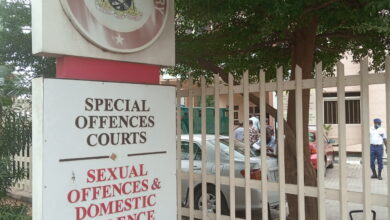
The Lagos State High Court at the Tafawa Balewa Square (TBS) will on October 9, decide whether to strike out a suit seeking to censor the film “Gangs of Lagos” and sanction its producers.
Justice Idowu Alakija fixed the date following a preliminary objection by Amazon Web Services Nigeria, against the suit filed by Isale-Eko Descendants Union (IDU), among others, against the film.
Amazon Web Services Nigeria, relying on Section 251(1)(q) of the 1999 Constitution prayed the judge to strike out the suit on the ground that the court does not have jurisdiction to entertain it.
The firm is also challenging the power of the Lagos State Government to regulate and censor films and videos produced within its territory as stipulated in the Cinematograph Law of Lagos State, 2004.
Amazon, a subsidiary of Amazon Inc and founder of Prime Video Nigeria, submitted that the Cinematograph Law of Lagos State, 2004 “does not apply to video and film censorship in the state.”
The Isale-Eko Descendants Union (IDU) instituted the suit seeking N10 billion damages against Amazon and other producers of the movie titled “Gangs of Lagos” for an alleged depiction of Isale Eko as a den of criminals and Eyo Masquerade as a gang of murderers.
Other claimants in the suit are Chief Ayodele Bajulaiye, who sued on behalf of the Bajulaiye Chieftaincy Family and Eyo Iga Bajulaiye, and Chief Abdul-Waheed Ayeni who sued on behalf of the Sasore Chieftaincy Family and Eyo Iga Sasore.
The 1st to 12th defendants are the Attorney General of Lagos State, Lagos State Video and Film Censors Board, Mrs. Jadesola Osiberu, Ms. Kemi Lala Akindoju, Mr. Adesegun Adetoro, Demi Olubanwo, Mr. Olumide Soyombo, Mr. Bankole Wellington, Mrs. Adesua Etomi-Wellington, Mr. Kola Aina, Greoh Limited and Amazon Web Services Nigeria for alleged sacrilegious and scandalous depiction of Eyo Masquerade in Gangs of Lagos
But in its preliminary objection filed on June 30, Amazon, the 12th defendant/applicant through its counsel Muyiwa Ogungbenro challenged the power of the state government to regulate videos and films.
Consequently, it asked the court to strike out the substantive suit on the ground that the Cinematograph Law of Lagos State, 2004 was enacted outside the legislative competence of the Lagos State House of Assembly.
Amazon thus sought “an order pursuant to Section 25(1)(q) of the Constitution of the Federal Republic of Nigeria, 1999, striking out this suit as this honorable court does not have jurisdiction to entertain it.”
It argued that the Cinematograph Law of Lagos State, 2004 under which the claimants brought their claims “does not apply to video and film censorship in Lagos State.
“The appropriate law is the National Film and Video Censor Board Act, 1993, an Act of the National, which has already covered the field,” Amazon argued.
On these grounds, Amazon claimed that the High Court of Lagos State “has no jurisdiction to compel the Lagos State Government to censor the firm Gang of Lagos under the Cinematograph Law of Lagos State, 2004, which falls within the provisions of the National Film and Video Censor Board Act.”
The global giant further claimed that section 25(1)(q) of the Constitution “precludes this honorable court from exercising jurisdiction over interpretation of the Constitution as it relates to the federal government and its agencies.”
Justice Alakija fixed October 9, to determine the preliminary objection.
In a recent ruling, Justice Alakija granted leave to Isale Eko Descendants Union to seek an order compelling the Lagos State Video and Film Censors Board to impose an N10billion fine against the Gangs of Lagos producers for an alleged wrongful depiction of Isale Eko as a den of criminals and the Eyo Masquerade as a gang of murderers.
The court has also allowed Isale Eko’s descendants to apply for judicial review and seek an order of mandamus directing the Attorney General of Lagos State and Lagos State Film and Video Censors Board to sanction the film producers under the Cinematograph Law of Lagos State.
It granted the leave for judicial review in an ex parte application brought against the film producers,
after hearing the arguments of the applicant’s counsel Mr. Olasupo Shasore (SAN), Mr. Adeniji Kazeem (SAN), Mr. Aderemi Bashua (SAN), Mrs. Oyinkansola Badejo-Okusanya, Akinwale Irokosu, and Adesamola Alebiosu, among others.







